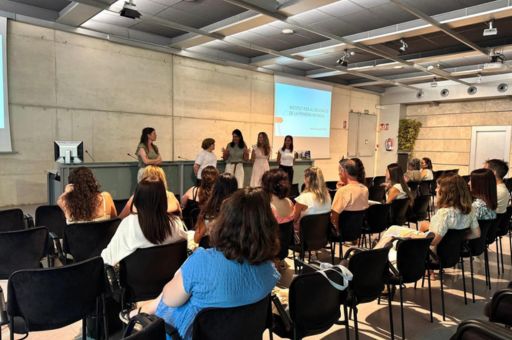The Ministry of Education expands the offering with 1,700 additional places and strengthens support for teaching teams to ensure quality implementation
The Director General of Early Childhood, Diversity Care and Educational Improvement, Neus Riera, and the Director General of Educational Planning and Management, Catalina Ginart, participated today in a meeting with the leadership teams of the schools that will introduce the first cycle of early childhood education (ages 0–3) in the upcoming school year. The meeting was held at the Ministry of Education and Universities.
In the 2025–2026 school year, a total of ten public educational centers in the Balearic Islands will begin offering the first cycle of early childhood education. Of these, seven are primary education schools (CEIP) and three are nursery schools (EI).
TDB keeps you informed. Follow us on: Facebook, Twitter and Instagram
Ten New Public Schools Will Offer Early Childhood Education for Ages 0 to 3 in the 2025–2026 School Year
The schools incorporating this stage include the nursery schools Sant Rafel (Sant Antoni de Portmany) and Santa Eulària in Ibiza, and Can Baix Sol in Marratxí. Also joining are CEIP Na Penyal (Cala Millor), Guillem Ballester i Cerdó (Muro), Sant Carles (Santa Eulària des Riu), Miquel Porcel (Palma), Sa Indioteria (Palma), Gabriel Palmer (Estellencs), and Fornells.
It is worth noting that for the 2025–2026 academic year, the Ministry of Education and Universities will offer more than 14,100 places for children aged 0 to 3 across the Balearic Islands—around 1,700 more than the previous year.
With this expansion, the Ministry continues to make progress toward its goal of extending early childhood education (0–3 years) to more public schools throughout the Balearic Islands, ensuring an increasingly broad and equitable educational offering for families.
Since the 2023–2024 school year, early childhood education for children aged 0 to 3 has been free of charge in public and publicly funded nursery schools across the Balearic Islands.
This meeting served as a space for guidance, exchange, and reflection on this fundamental educational stage. The goal is to support schools in facing this new challenge and to provide resources and guidelines for a high-quality implementation.
